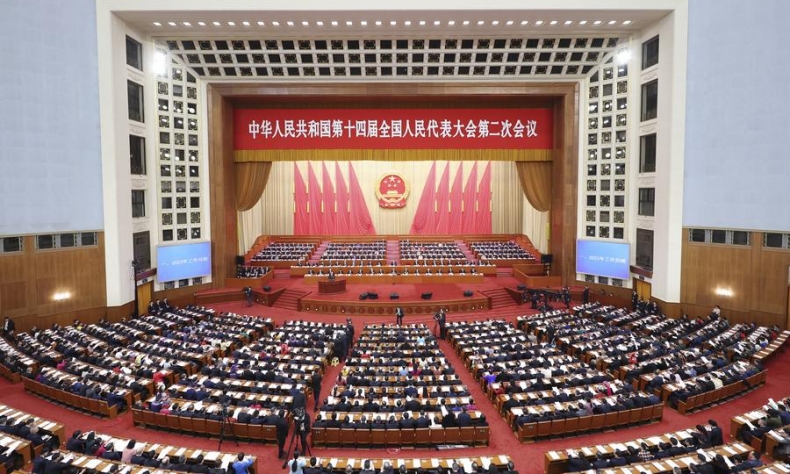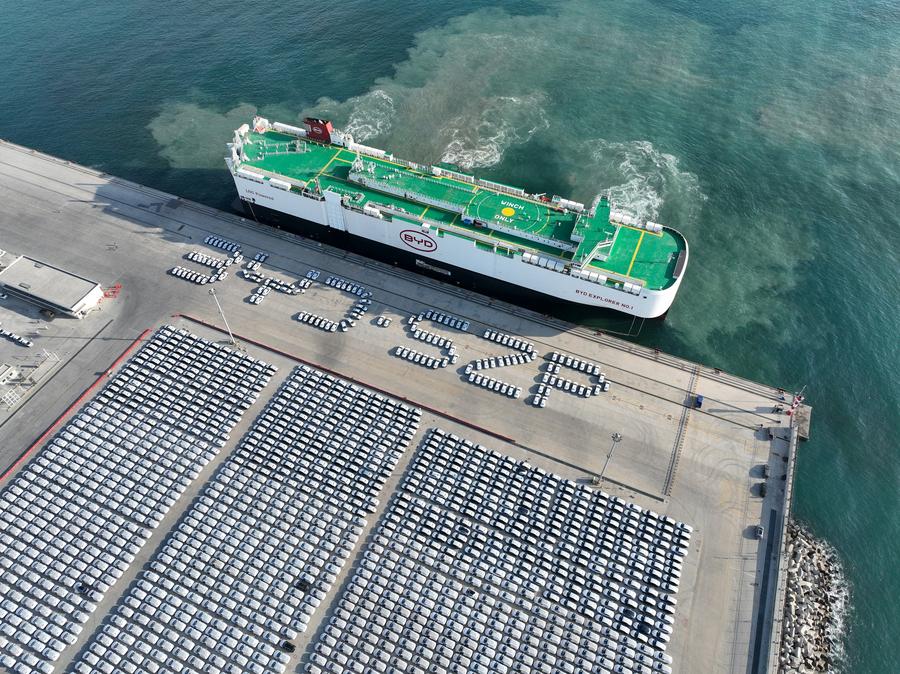The Government Work Report Outlines How to Steady the Ship of Chinese Economy

What we see accordingly from China’s 2024 government work report is thus a multipronged economic strategy which is tailored to furthering the country’s economic development in consideration of the broader global challenges at hand.
On March 5, the government work report was presented by Premier Li Qiang as part of the two sessions of the National People’s Congress in Beijing. Here, the premier gives an accounting to the legislature “for deliberation” and evaluates the country’s progress of the previous year, while setting suitable goals and targets for the upcoming year, especially in regards to China’s economy.
As quoted by CGTN, the report stated that “China accomplished its major economic and social development targets and tasks of 2023” despite for that matter considerable challenges faced. In line with this, a similar growth target of around 5 percent has been set for the year 2024.
In assessing China’s economic situation and its upcoming goals as specified in the report, it is important to assess the issue in context rather than making spurious judgement. If there’s one thing that should be made clear it is that China’s economic development is now taking place in a very different geopolitical environment and global economy than in previous years, which has brought new challenges that ought to be navigated.
First of all, the era of free and open globalization is being increasingly challenged. Some countries have shifted their foreign policies from once seeing the expansion of free trade and commerce as economically beneficial and transformative, to perceiving it in a “zero-sum” fashion which claims such changes the global balance of power in ways which are unfavourable to them, leading to an unprecedented politicisation of economics.
To this end, the new global environment is fraught with the deliberate weaponization and undermining of global supply chains with an emphasis on “political control” rather than efficiency and cost, the large-scale expansion of export controls and an attempt to create “closed monopolies” over high-end technology markets, the cultivation of geopolitical and military tensions in order to create deferential attitudes towards foreign investment and trade, as well as several ongoing major conflicts around the world which have generated large-scale uncertainties and also had huge detrimental impacts on access to certain commodities and supply chains. It is little surprise on this note that the global economy as a whole has been struggling, and that several major economies such as Japan, Germany and the United Kingdom, are in effect struggling or in outright recession.

This, combined with global inflationary challenges derived from the above factors, has of course placed pressure on consumption in the West and thus weighed down on Chinese exports. It is always worth noting that China does not exist independently of the broader global environment, of course the mainstream media in the West neglect this when pushing pessimistic, if not politicised narratives in regards to the state of the Chinese economy. For this reason, the government work report places emphasis on the need to be able to boost domestic demand, as a great deal of domestic growth will hinge on the continued development of China’s consumer economy and spending at home, which continues to have significant potential.
In addition to that, the report also seeks to reassure confidence in the Chinese economy by expanding the scope for foreign investment. The report contains a pledge accordingly to reduce restrictions on foreign investment in China’s manufacturing sectors, as well as to permit investment in previously off-limits ones for the first time. While some countries are attempting to “close down” certain sectors and are deliberately weaponizing the notion of market access in order to protect their perceived privileges, China on the other hand has premised its economic strategy on continuing the pledge of what is known as “reform and opening up” that is making its economy more accessible to foreign partners and businesses and of a higher standard. If the United States is attempting to squeeze globalization to attack China, then China’s incentivisation is to expand it accordingly. For example, while the U.S. may lock Chinese companies out of 5G network participation and encourage allies to do the same, China is easing foreign investment restrictions on telecommunications in contrast.
Similarly, this policy also expands into China’s international relations. While the U.S. and its allies are promoting protectionism, bloc markets, market exclusion, or so-called “de-risking”, China sees its strategy in contrast as to “deepen multilateral, bilateral and regional economic cooperation” in other words to continue to enhance its free trade agreements (FTAs) and similar partnerships with countries around the world in order to sustain the global free trading system and pre-emptively block attempts to shut it out. China after all has great leverage and appeal due to the size of its domestic consumer market, which offers unparalleled opportunity. Thus, it sealed a number of FTAs in 2023, and will continue to negotiate numerous more in 2024. The ones designated as priorities in the report included the CPTPP (Comprehensive Progressive Trans-Pacific Partnership).
As China consolidates more agreements, the report pledges similarly to continue to upgrade and consolidate its place in the global industrial and supply chains through what is described as “developing new quality productive forces at a faster pace”, including “supply chain improvement and upgrading, the cultivation of emerging industries and future-oriented industries” as well as development of the digital economy.
What we see accordingly from China’s 2024 government work report is thus a multipronged economic strategy which is tailored to furthering the country’s economic development in consideration of the broader global challenges at hand. China wants to be able to keep free trade alive, open its markets and strengthen its own industries all while boosting consumption and demand at home. This is about “steadying the ship” amidst the waves of a storm. That is to say the current environment requires that everything be slightly more strategic; there is no doubt China will succeed in achieving its long-term goals.
The article reflects the author’s opinions, and not necessarily the views of China Focus.
 Facebook
Facebook
 Twitter
Twitter
 Linkedin
Linkedin
 Google +
Google +







